Shaping the Future of Nursing Education & Practice: The Power of Visionary Leadership
April 29, 2025
5:00 PM - 6:00 PM (ET)
Presented by the Graduate Nursing Student Academy
Webinar Details
Join two visionary nurse champions to explore their shared approach to leadership, one that is goal-oriented, innovative, and centered on collaboration. Discover how this leadership style can drive success in both academic and practice settings, fueled by effective partnerships. This session will provide you with practical insights on how you can adopt visionary leadership principals in your own nursing career, equipping you with the tools to navigate the evolving healthcare landscape.
Outcomes:
By the end of this session, viewers will be able to:
- Gain an understanding of key characteristics of visionary leadership.
- Explore strategies for applying visionary leadership principles through academic-practice partnership
- Discover actionable leadership skills to effectively navigate the challenges and opportunities in an ever-changing healthcare environment.
Note: Recording of the webinar will be available soon after the webinar airs. Visit AACN's On-Demand Webinars to watch.
Speakers
Speakers
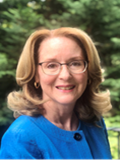 Susan Bakewell-Sachs, PhD, RN, FAAN
Susan Bakewell-Sachs, PhD, RN, FAAN
Vice President for Nursing Affairs and Dean & Professor of Nursing
Oregon Health & Science University
Since 2013, Susan Bakewell-Sachs has served as Vice President for Nursing Affairs, professor and dean at the Oregon Health & Science University (OHSU) School of Nursing. She has a clinical background as a pediatric nurse practitioner, specializing in caring for infants and children born prematurely. She is also a recognized expert in nursing education, interprofessional education, and academic-practice partnerships, seeking ways to develop and evaluate innovative models of education and practice to prepare healthcare professionals and improve patient care.
Dr. Bakewell-Sachs is active in national organizations, recently completing service as an appointed member of the Veterans’ Administration National Academic Affiliations Council and Co-chair, Diversity in the Healthcare Workforce Subcommittee. She is past Chair of the Board of Directors of the American Association of Colleges of Nursing, 2020-2022. She is a fellow of the American Academy of Nursing and the Western Academy of Nursing. Dr. Bakewell-Sachs was a Robert Wood Johnson Foundation (RWJF) Executive Nurse Fellow and served as Program Director for the New Jersey Nursing Initiative, an RWJF program aimed at addressing the nurse faculty shortage through new curriculum models, faculty development, and academic-practice partnerships.

Brooke Baldwin, DNP, MSN, RN, CENP
Senior Vice President & Chief Nursing Executive
Oregon Health & Science University Healthcare
Brooke Baldwin, DNP, RN, CENP serves as the vice VP and chief nursing executive (CNE) for OHSU Healthcare and the Associate Dean of Clinical Affairs at OHSU School of Nursing. University of California, Irvine Health system (UCI Health) and has been in the role since January 2021. As the CNE, Brooke contributes to the development of strategic goals and provides a vision for all aspects of patient and quality of care, ensuring professional nursing standards are uniform and maintained across the system. She is responsible for nursing and patient care initiatives across the health system and oversight in all inpatient and outpatient care settings.
Tags
Empowering Growth: Reverse Mentoring Strategies
January 28, 2025
2:00 PM - 3:00 PM (ET)
Webinar Overview
This webinar explores the innovative concept of reverse mentoring in the nursing field, where less experienced nurses guide senior leaders. It highlights the historical context of mentoring, showcasing how reverse mentoring fosters a two-way exchange of knowledge that enhances communication and collaboration across generations. The webinar outlines the numerous benefits of this approach, including improved patient care, innovation, and a more inclusive workplace culture. It addresses potential barriers to implementation, such as cultural resistance and misaligned expectations, and provides practical strategies for organizations to successfully establish reverse mentoring programs and opportunities for students to introduce this within their workplace.
Outcomes:
- Promote understanding and implementation of reverse mentoring.
- Highlight the benefits and impact of reverse mentoring.
- Provide practical strategies for successful implementation of reverse mentoring.
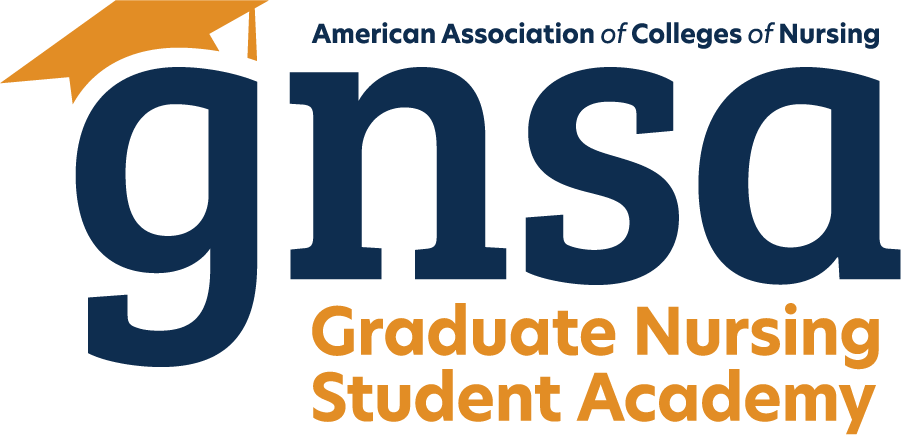 This Webinar is hosted by the Graduate Nursing Student Academy (GNSA). For more information on the GNSA, visit www.aacnnursing.org/GNSA.
This Webinar is hosted by the Graduate Nursing Student Academy (GNSA). For more information on the GNSA, visit www.aacnnursing.org/GNSA.
Speakers
Speaker

Denise Robertson, DNP, RN, NEA-BC, CNL
Associate Chief Nurse
Tuscaloosa Veterans Affairs Medical Center
Dr. Denise Robertson is an experienced nursing professional with three decades in the field. She holds nursing degrees from the University of Alabama and the University of Alabama at Birmingham and is dual-board certified as a Nurse Executive-Advanced and Clinical Nurse Leader.
As the Associate Chief Nurse at the Tuscaloosa VA Medical Center, she oversees nursing services for Primary and Specialty Care and serves as a certified VA mentor and coach. She is the immediate past President of the Alabama State Nurses Association’s (ASNA) District 2 and currently serves as the Mentor Community Manager for the American Nurses Association, providing guidance on effective mentoring relationships.
Dr. Robertson is a gifted writer and has authored several pieces for the GNSA Bulletin and has significantly contributed to engaging over 10,000 student members nationwide. Her article, "Mentorship Matters," published in the American Nurse Journal, aims to inspire nurses about the importance of mentoring.
Dr. Robertson's dedication to mentorship earned her the 2021 ASNA Mentorship Award, recognizing her exceptional support for nurses’ development. Her contributions have a profound impact on the nursing profession and the communities she serves.
Tags
Envisioning Students as Future Nurse Faculty
November 19, 2024
1:00 PM - 2:00 PM (ET)
Webinar Details
Discuss the importance of mentorship and the development of student to faculty pathways to encourage academia as a career choice.
Outcomes:
- Identify contributing factors to faculty shortage.
- Identify barriers for students/graduates to enter academia.
- Describe strategies to support students/graduate entry into academia.
Note: Recording of the webinar will be available soon after the webinar airs. Visit AACN's On-Demand Webinars to watch.
This webinar is co-sponsored by the Future of Nursing™ Campaign for Action, AARP Foundation, and the Robert Wood Johnson Foundation.
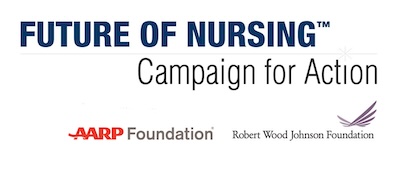
Speakers
Speakers & Facilitator
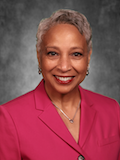 Brigit Carter, PhD, RN, CCRN, FAAN
Brigit Carter, PhD, RN, CCRN, FAAN
Chief Access and Engagement Officer
American Association of Colleges
Dr. Brigit Carter, Chief Access and Engagement Officer, joined American Association of Colleges of Nursing (AACN) in February 2023. She is Professor Emerita at the Duke University School of Nursing, where she served as the Associate Dean for Diversity and Inclusion from 2018-2023. From 2015-2018 she served as the Director of the DUSON Accelerated Bachelor of Science in Nursing (ABSN) program. Dr. Carter earned her BSN at North Carolina Central University (NCCU) in 1998, a Master of Science in Nursing Education from University of North Carolina at Greensboro in 2002, and a PhD in Nursing from University of North Carolina at Chapel Hill in 2009. Her current educational research is focused on understanding students' experiences with microaggressions and the development of strategies to mitigate the impact of microaggressions. Dr. Carter also has a focus on strategies intended to increase historically marginalized students in nursing and understand individual-level social determinants that serve as barriers to achieving nursing education. Dr. Carter is a Fellow in the American Academy of Nursing, an Atlantic Fellow for Health Equity, and a Duke Teaching for Equity fellow.
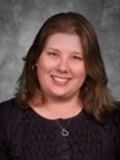
Allison Lewinski, PhD, MPH, RN
Assistant Professor
Duke University School of Nursing
Dr. Allison Lewinski is a health services researcher with a focus on eHealth interventions and chronic illness self-management. Her work sits at the intersection of precision medicine and population health. Dr. Lewinski’s interest in health services and nursing research, specifically in developing and implementing sustainable interventions to improve health outcomes, is an extension of her experiences in public health and nursing. Dr. Lewinski aims to develop meaningful interventions that are relevant, appropriate, and can be implemented in real-world clinical settings with interdisciplinary collaborators. Her use of mixed methods enables her to understand how individuals engage with healthcare teams, how best to support behavior change in diverse populations and with varying disease states, and how to foster stronger engagement with the healthcare system. Additionally, Dr. Lewinski is interested in examining intervention implementation and adaptation as a means to understand how, why, when, and for what populations and settings interventions work. Dr. Lewinski’s career development award examines the association of diabetes distress and related factors using quantitative and qualitative methods in order to develop a novel, nurse-led intervention to improve self-management in Veterans with type 2 diabetes. Dr. Lewinski completed her postdoctoral fellowship in health services research at the Durham Center of Innovation to Accelerate Discovery and Practice Transformation at the Durham VA. She completed her PhD in Nursing at Duke University School of Nursing, a Master of Public Health in Health Behavior and Health Education at University of Michigan, a Bachelor of Science in Zoology at Michigan State University, and a Bachelor of Science in Nursing at Maryville University in St. Louis.

Winifred Quinn, PhD
Director, Nursing Workforce & Policy
AARP Center for Health Equity through Nursing
Dr. Winifred Quinn is the director, nursing workforce & policy, at the AARP Center for Health Equity through Nursing within the AARP Public Policy Institute (PPI). She co-leads a national campaign dedicated to improving health care through nursing, the Future of Nursing: Campaign for Action. She oversees a team that supports action coalitions in each state and the District of Columbia that work to implement the Institute of Medicine’s recommendations from its landmark 2011 report, The Future of Nursing: Leading Change, Advancing Health. Dr. Quinn also assists with the Campaign for Action’s diversity work to help ensure a more diverse nursing workforce, faculty, and leadership. Dr. Quinn also works across AARP to help address public policies that intersect with consumer and nursing issues. She focuses on policy issues related to improving funding for nursing education and legal barriers that pr event all levels of registered nurses from practicing to the full extent of their education and expertise. Her federal policy work includes working on nursing education provisions within the 2010 Patient Protection and Affordable Care Act. She helped to initiate a national-level coalition that successfully moved Medicare to begin supporting graduate-level nursing education. Her state-level policy work entails organizing technical assistance to action coalitions and AARP state offices that are improving funding for nursing education or modernizing the scope of practice laws. Within this role, she places a strong emphasis on building coalitions and engaging stakeholders. She holds a master's in counseling, higher education, and human development from Montclair State University and a PhD in communication processes with a focus on health and public policy from Rutgers University School of Communication and Information.
Tags
Environmental Health: Perspectives on the Nursing Role
February 27, 2024
3:00 PM - 4:00 PM (ET)
Hosted by AACN's Research Leadership Network (RLN)
Webinar Details
During this webinar, participants will hear one nurse’s journey from the bedside to environmental health leader, explore resources from the National Environmental Education Foundation and discuss opportunities for research in the environmental health space.
Objectives:
- Understand the role nursing plays in promoting environmental health.
- Explore resources for healthcare providers from the National Environmental Education Foundation.
- Identify and articulate at least two opportunities for nursing research in the environmental health field.
Note: Recording of the webinar will be available soon after the webinar airs. Visit AACN's On-Demand Webinars to watch.
Speakers
Speakers
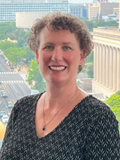
Christy Haas-Howard, MPH, BSN, BA, RN, AE-C, NCSN
Program Director, Health
National Environmental Education Foundation (NEEF)
Christy Haas-Howard oversees the development, execution, and evaluation of health initiatives related to the environment. She collaborates with the conservation and K-12 education teams to identify priority areas of common interest to maximize resources and impact. As an experienced health care provider, she tracks emerging trends in the health and environment space, recognizing and amplifying the opportunities to create greater health equity and environmental justice. Christy comes to NEEF with over 17 years as a registered nurse in the school setting. She has been asthma educator-certified since 2009 and has led various school-based asthma programs at the local and state level. She has also worked at the national level to cultivate an increase in school nurse’s knowledge and skills related to asthma care. Christy has presented and published on asthma and the upstream benefits of addressing environmental exposures and climate change. Her other previous projects include supporting a pilot air quality sensor network and health literacy project in Denver, CO, and implementing an air quality and asthma literacy Environmental Health Nurse Fellowship. Christy holds a BA in Economics from Claremont McKenna College, a BS in Nursing from Metropolitan State University, Denver, and a MPH from the Colorado School of Public Health. She enjoys gardening, playing games with her family, walking her dogs, and hiking in the beautiful Rocky Mountains.
Tags
Engaging Learners Through Use of Medical Readers Theatre
February 13, 2024
2:00 PM - 3:00 PM (ET)
Hosted by the Faculty Leadership Network
Webinar Details
Using stories to teach is not a new strategy for helping students understand best practices in patient care in the Affective Domain. However, the use of Medical Readers Theatre is a relatively new concept to nursing as it uses stories and scripts from nontraditional sources, as well as involves student participation to read the story as the teaching points are made. The instructor facilitates discussion upon completion of the “play” to impress key principles of patient care that may be affected by bias, stereotyping, as well as attitudes, beliefs, and value systems of student learners. Join us for this webinar to uncover the power of narratives, the art of immersive learning, and the transformative potential in healthcare education.
Objectives:
- Discuss the importance of the affective domain in patient care.
- Identify the principles and strategies for utilizing Medical Readers Theatre to teach affective domain concepts.
- Explore options of stories that can be used to teach affective domain concepts.
Note: Recording of the webinar will be available soon after the webinar airs. Visit AACN's On-Demand Webinars to watch.
Speakers
Speakers

Andrea Novak, PhD, MSN, RN, NPD-BC, FAEN
Field Experience Coordinator/Adjunct Faculty
Aspen University
Dr. Andrea Novak is currently the Field Experience Coordinator and Adjunct Faculty for Aspen University. Her history in adult education spans over 30 years with most recently serving as an AHEC Nurse for about 23 years. Dr. Novak is a member of the NCNA Council on Gerontology and serves as a peer reviewer for NCNA’s CEAU Task Force as well as a Peer Reviewer for the Emergency Nurses Association Education Committee.
Her nursing background began as many of us did as a med-surg nurse which expanded to working in the emergency nursing arena and later as a nurse educator for a high-volume emergency department. Andrea is one of the North Carolina’s 100 Great Nurses, as well as a Fellow in the Academy of Emergency Nursing. She has served on the editorial boards of the Journal of Emergency Nursing, the National AHEC Organization and currently on the Aspen Journal. A published author and national speaker, Dr. Novak also received training as a health literacy consultant through UNC Chapel Hill and developed a strong interest in both helping healthcare providers meet the literacy needs of their patients, especially those most vulnerable; the elderly. Dr. Novak holds a PhD in Public Health; community health and education from Walden University, two Masters Degrees, two bachelor degrees, and an ADN.